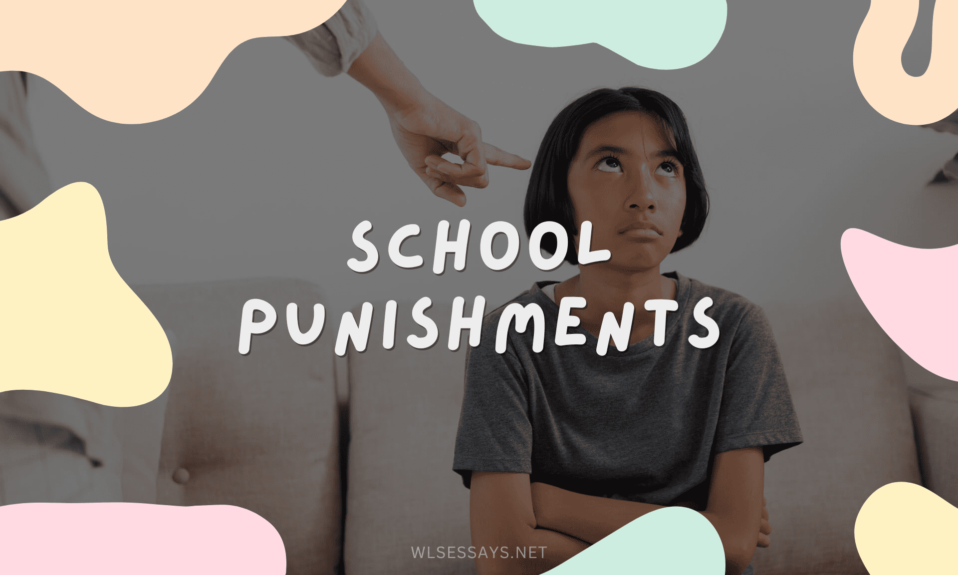Student’s Full Name
Institutional Affiliation
Course Number and Name
Instructor Name
Assignment Due Date
Mental Health Outcomes of Prolonged Social Media Use in Adolescents
Social media’s growth has changed how adolescents engage with their peers. The platform has become an ever-present aspect of their daily lives and helps with communication, self-expression, and social connection. However, this innovation has created a situation where adolescents are constantly immersed in a virtual world, connecting with friends and family, sharing experiences, and constructing their identities online. This shift in communication and socialization has led to concerns about the potential impact on the mental health of adolescents. Understanding these implications is crucial, as poor mental health development during adolescence impacts the overall well-being in adulthood. Consequently, investigating the underlying relationship between prolonged social media use and mental health outcomes is essential to protect the psychological welfare of the younger generation. Despite the undeniable positives of social media use among teenagers, prolonged use results in adverse mental health outcomes, such as depression and low self-esteem, loneliness, insomnia, the potential for addiction, and a decrease in attention span.
Trends in Social Media Use in Adolescents
The prolonged social media use among adolescents is a significant concern due to its widespread prevalence and potential impact on mental health outcomes. According to Guo and Cheung (2023), Bozzola et al. (2022), and data from the Pew Research Center (2023), more than 90% of teens use social media. Notably, Guo and Cheung’s (2023) findings revealed that in the U.S., platforms like YouTube, Instagram, and Snapchat are popular among teenagers, with over 93% of those aged 12 to 17 being connected to social media, mainly for entertainment and social connection. Similarly, in China, an annual report highlighted that approximately 183 million teenagers engage in online activities, such as watching short videos and studying (Guo & Cheung, 2023). Similarly, the Pew Research Center (2023) further supports this trend, indicating that YouTube is the most commonly used platform among teens, with 95% having ever used it, followed by TikTok, Instagram, and Snapchat. Besides, Bozzola et al. (2022) note that adolescents spend a mean of 5 hours per day on social media. These findings imply that the use of social media in adolescents’ lives is extensive and raises concerns about the potential mental health outcomes associated with prolonged usage. Many adolescents use social media for entertainment, and extensive usage adversely affects their mental well-being.
The Relationship Between Social Media Use and Mental Health Outcomes in Adolescents
In recent years, social media has become an essential aspect of adolescents’ lives and offers various positive influences. The platform allows teenagers to connect, express themselves, share information, create a sense of community, and improve their communication skills (Bozzola et al., 2022). However, besides these benefits, prolonged social media use is associated with adverse mental health outcomes in adolescence. The section below will focus on the impact of social media on depression and low self-esteem, feelings of loneliness, insomnia, the potential for addiction, and the observed decrease in attention span among this age group. Examining these aspects contributes to a better understanding of the complex relationship between social media and adolescent mental health.
Depression and Self-esteem
Excessive use of social media among adolescents results in depression and low self-esteem. According to Vidal et al. (2020), spending a lot of time on platforms like Instagram or Snapchat often leads to constant comparison with peers. Users often showcase seemingly perfect and glamorous lives, which, in most cases, is incorrect. However, a teenager who cannot differentiate the truth from reality will believe all the information they see online and compare it to their experiences. This continual exposure to false content may create feelings of inadequacy and inferiority, causing adolescents to believe their lives are imperfect. Moreover, the constant stream of edited images and polished lifestyles can create unrealistic standards and contribute to a sense of low self-esteem. In short, as adolescents try to meet these unattainable ideals, they may experience heightened pressure, which will eventually increase their vulnerability to depression. Therefore, excessive social media use among adolescents is detrimental to their psychological well-being because it contributes to an inferiority complex, leading to depression.
Additionally, prolonged social media use among adolescents can result in depression through the mediating effect of cyberbullying. Cyberbullying on online platforms has harmful consequences and often leads to high stress levels, anxiety, and feelings of powerlessness among victims (Vidal et al., 2020). For example, exposure to hurtful comments, threats, or harassment on social media platforms can leave adolescents feeling overwhelmed and powerless. The negative outcomes of such online harassment ultimately cause depression. In general, extended use of social media among teenagers exposes them to cyberbullying, which, in turn, makes them anxious and depressed.
Loneliness
Prolonged social media use among adolescents has a paradoxical outcome on the mental health of teenagers because it results in increased loneliness. According to Wu et al. (2024), most adolescents still feel empty despite being connected online to their peers. Virtual interactions may initially offer a sense of belonging. However, the depth and quality of these connections often fall short of those experienced face-to-face. For instance, scrolling through curated social media feeds may create an illusion of constant social engagement. Nevertheless, lacking genuine, unfiltered communication can leave adolescents feeling isolated. Due to this problem, some teenagers become suicidal. Additionally, the pressure to conform to the ‘perfect’ online personas can lead to a sense of inadequacy and exclusion. As such, when authentic emotional cues that accompany in-person interactions are lacking, the extended use of social media use may inadvertently contribute to a pervasive feeling of loneliness among adolescents. The scenario highlights the complex relationship between online connectivity and mental well-being. In general, adolescents may experience loneliness due to a lack of real connections, which online interactions do not provide.
Insomnia
Excessive use of social media among adolescents results in insomnia and sleep disturbances. According to van den Eijnden et al. (2021), many young individuals usually scroll through social media platforms late into the night, leading to disrupted sleep patterns. For instance, constant exposure to stimulating content such as notifications, videos, and interactive posts can contribute to difficulties in falling asleep. Simultaneously, teenagers may experience heightened anxiety or fear of missing out (FOMO) as they engage with social media. This problem further impacts their ability to relax and unwind before bedtime. Besides, insomnia can significantly disrupt adolescents’ lives by interfering with their cognitive functions and concentration during daytime activities, hindering their academic performance and overall productivity. Additionally, the persistent lack of quality sleep may contribute to heightened emotional instability and worsen stress levels, which, in turn, negatively impact their social relationships and mental well-being. Therefore, too much engagement on social media among teenagers results in sleeping problems, interfering with their normal functioning and academic performance.
Addiction and Decrease in Attention Span
Addiction and a decrease in attention span are adverse mental health outcomes affecting adolescents as a result of prolonged social media use. Addiction to social media is a severe mental health issue because it involves a complex interplay of neurological, psychological, and behavioral factors that contribute to the compulsive and often detrimental pursuit of activities despite negative consequences (Ding et al., 2021). For example, the compulsive behavior of constantly checking social media accounts leads to heightened stress levels, anxiety, and even sleep disturbances. A teenager might spend hours scrolling through Instagram or TikTok, feeling a sense of urgency to stay connected and updated, inadvertently fostering addictive patterns that can detrimentally affect their mental well-being. Additionally, extended use of social media results in a decline in attention span. The rationale for this problem is that teenagers experience a constant influx of information on these platforms, making it challenging to maintain focus on tasks that require sustained attention. For example, a student attempting to study may find themselves easily distracted by notifications, messages, or the allure of browsing social media. The decreased attention span can hinder academic performance and contribute to heightened feelings of frustration and inadequacy, ultimately affecting the overall mental health of adolescents engaged in excessive social media use. Therefore, the attention-related challenges and the addictive nature of social media indicate that prolonged usage is a serious mental health problem among teenagers.
Conclusion
Extended exposure to social media has negative repercussions on adolescents’ mental well-being because it causes depression, low self-esteem, loneliness, insomnia, the risk of addiction, and a decline in attention span. Social media use is prevalent among adolescents, with over 90% of teenagers using the platform for at least five hours daily. The resulting mental health issues adversely affect the teenagers’ daily functioning, including academic performance. This situation implies that a comprehensive approach that involves education, digital literacy, and supportive interventions is crucial to promoting the mental well-being of adolescents in the digital age. Adopting a responsible approach to social media use will help empower the younger generation to use online platforms while prioritizing their mental health.
References
Bozzola, E., Spina, G., Agostiniani, R., Barni, S., Russo, R., Scarpato, E., … & Staiano, A. (2022). The use of social media in children and adolescents: Scoping review on the potential risks. International Journal of Environmental Research and Public Health, 19(16), 9960. https://doi.org/10.3390/ijerph19169960.
Ding, K., Shen, Y., Liu, Q., & Li, H. (2023, December). The effects of digital addiction on brain function and structure of children and adolescents: A scoping review. In Healthcare 12(1), 15. https://doi.org/10.3390/healthcare12010015.
Guo, S., & Cheung, C. K. (2023, August). Social media and adolescents’ well-being. In Healthcare 11(16), 2297. https://doi.org/10.3390/healthcare11162297.
Pew Research Center, (2023). Teens and social media: Key findings from Pew Research Center surveys. https://www.pewresearch.org/short-reads/2023/04/24/teens-and-social-media-key-findings-from-pew-research-center-surveys/.
van den Eijnden, R. J., Geurts, S. M., Ter Bogt, T. F., van der Rijst, V. G., & Koning, I. M. (2021). Social media use and adolescents’ sleep: A longitudinal study on the protective role of parental rules regarding internet use before sleep. International Journal of Environmental Research and Public Health, 18(3), 1346. https://doi.org/10.3390/ijerph18031346.
Vidal, C., Lhaksampa, T., Miller, L., & Platt, R. (2020). Social media use and depression in adolescents: A scoping review. International Review of Psychiatry, 32(3), 235-253. https://doi.org/10.1080/09540261.2020.1720623.
Wu, P., Feng, R., & Zhang, J. (2024). The relationship between loneliness and problematic social media usage in Chinese university students: A longitudinal study. BMC Psychology, 12(1), 13. https://doi.org/10.1186/s40359-023-01498-4.









